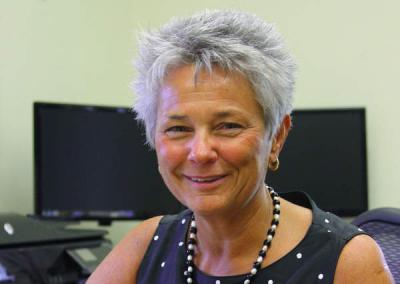New Superintendent evaluation system detailed by School Committee
Beginning with its evaluation of Wareham Public Schools' new Superintendent Kimberly Shaver-Hood in September, the School Committee will use a new state-mandated evaluation system to determine Shaver-Hood's performance and pay raises.
"It's one of the most important things that we do," said committee chair Clifford Sylvia of the yearly evaluation.
The new system promotes four standards and asks committee members to rate Shaver-Hood as either unsatisfactory, needs improvement, proficient, or exemplary in her instructional leadership, management and operations, family and community engagement, and professional culture.
Additionally, the system factors performance on goals into the overall performance rating. The committee will rate Shaver-Hood's performance on goals she sets at the beginning of the academic year.
Because the system was not in place at the beginning of this year, the committee chose to only evaluate Shaver Hood on standards in September, not on goals. Goal evaluation will commence in subsequent years.
The committee did have some flexibility within the new system, and at a prior meeting they chose to weight goals and standards at a 60:40 ratio, meaning 60% of Shaver-Hood's performance rating will be on her goals and 40% will be tied to her performance of standards. As per the new system, her "goals" performance out of 60 will be added to her "standards" performance out of 40 to obtain her performance rating out of 100. This year, all 100 points will be a representation of Shaver-Hood's standards-based performance.
Tuesday's meeting was an opportunity for the committee to hash out the details of how "incentive bonus" pay raises were going to work. Shaver-Hood's contract allows for up to a 5% bonus every year, and the committee disagreed as to how this bonus would be applied.
Chair Clifford Sylvia was apprehensive about allowing a rating of "proficient" to be too highly incentivized.
"To attach a dollar amount to proficiency, I always had a problem with that," he said. "It's kind of like rewarding someone for being what they're supposed to be."
Secretary Geoffrey Swett disagreed, noting the difficulty of obtaining an exemplary rating as he saw it and stating that the proficient rating should carry some bonus.
While many plans were proposed, eventually the committee decided on one proposed by Melvin Lazarus. For a "Proficient" overall rating of 80-89, the committee can award Shaver-Hood a 1-3% pay increase. For an exemplary rating of 90-100, they can award Shaver-Hood a 4-5% increase.
Vice-Chair Michael Flaherty expressed some concern from the taxpayer's point of view that the yearly increase should simply be a bonus and not a permanent pay raise. This was rejected by Lazarus and Swett.
"I believe that we have to compete for high-quality people," said Swett.
Lazarus agreed, stating that although taxpayers may be unhappy with a pay increase, "that doesn't mean we shouldn't do it."











